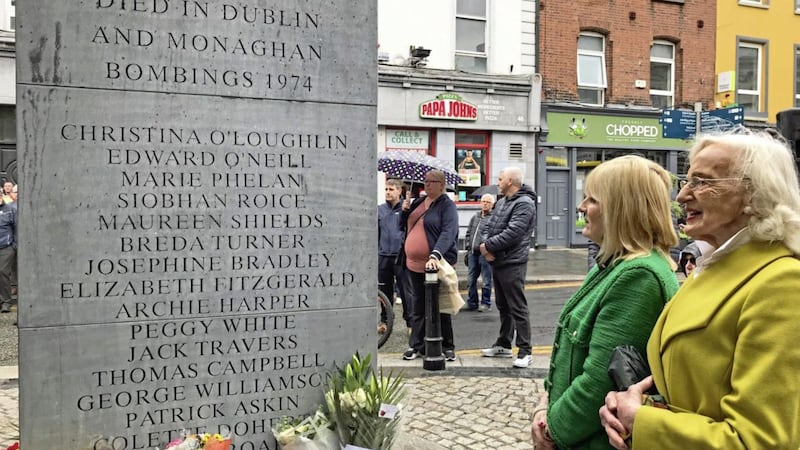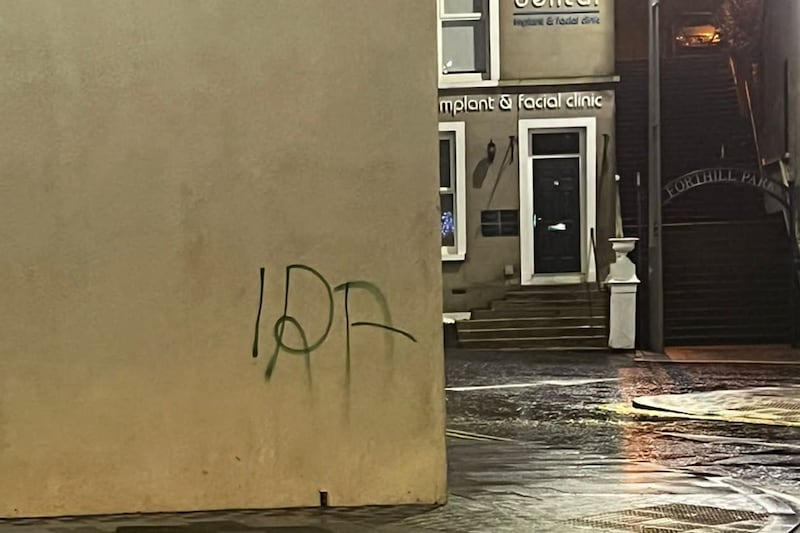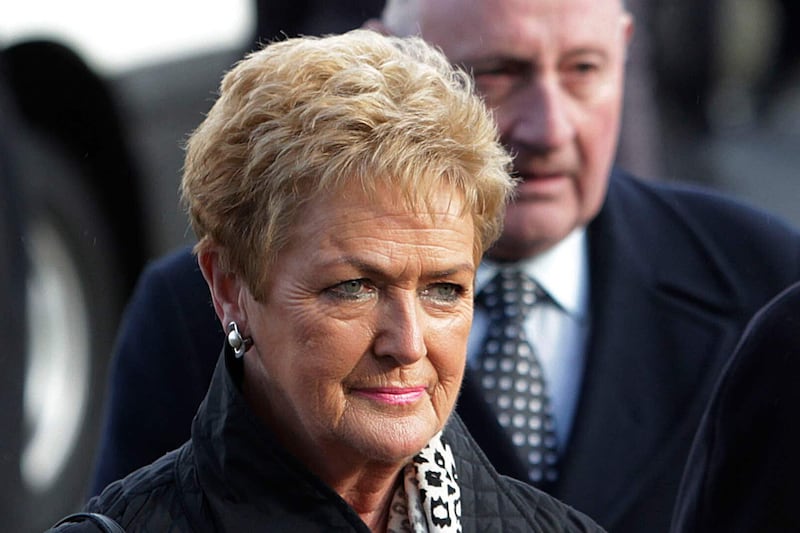NORTHERN Ireland cannot move on from the Troubles without a formal acknowledgement that paramilitary violence was wrong, a victims' group has said.
South East Fermanagh Foundation (SEFF) said it is concerned that too much focus has been placed on victims of state violence and not those affected by republican and loyalist paramilitaries.
Ken Funston, who works as an advocacy support manager with SEFF, said some victims' families felt that the only way to move their case forward "was to make an allegation of collusion".
"As an organisation we can only deal with facts. It's doing a family a disservice otherwise," he said.
His colleague Peter Murtagh, a fellow advocacy support manager, claimed that "people were beginning to believe the propaganda as such that it was all collusion".
"Innocent victims are now starting to think that their loved one's killing could have been stopped," he said.
The Northern Ireland Office held a consultation in 2018 on how to address the legacy of the Troubles.
SEFF said swift action is now needed to help victims and their families.
The group's director Kenny Donaldson said that the legacy of the Troubles cannot be resolved until a formal acknowledgement is made that violence was unacceptable.
He said the group does not work with former paramilitaries - a stance he admitted was a "fringe position".
"All of the violence across the board was wrong whether that's republicans or loyalists or in those cases of pre-meditation on the part of those who were employed by the state or indeed the Republic of Ireland state and its arming and financing and training the Provisionals at the start," he said.
He added: "If there was an acceptance of all that as a foundation that then there will be goodwill to build on it. The denial of those basics - how can we ever get a resolution to this issue?"
He said the "big acknowledgements need to take part at the start of the (wider legacy) process not at the end".
"When the ceasefires came there was no requirement for an acknowledgement of wrong prior to setting up the structures we did," he said.
"We've done everything in reverse. People may say 'are you fighting for something that you're never going to get?'
"And yet, even if you're in a minority position in that, it doesn't make your position wrong."
He added: "Why don't we have a functioning Stormont? "
"It's not about RHI (the botched Renewable Heat Incentive), it's not about rights, it's about this issue - more than anything else," he said.
Mr Donaldson said the group also wants "an acceptance that there was ethnic cleansing along our border".
"We feel there was ethnic cleansing of our nationalist population also," he said.
"You look in terms of our inner urban areas like Newtownabbey there were definitely people in estates who were in the minority where they were targeted for that reason."
The group's main membership comes from a Protestant or unionist background but it said it also supports a "growing number of victims of loyalist terrorism" due to the group's refusal to deal with former paramilitaries.
It supports families including that of James Mullan, a Catholic father-of-one murdered by the Red Hand Commando in 1972, and the families and survivors of the 1974 Dublin and 1972 Belturbet bombings carried out by the UVF.
"We don't currently have families who allege wrong-doing within the state," he said. "But the door is not closed to individuals."
The group, which gets most of its funding through the Victims and Survivors Service, said those who were injured during the Troubles should receive a special pension.
But the group is adamant that former paramilitaries should not receive any money.
"If someone has engaged in a lifetime of terror and has never shown any remorse for their activities, and nor are they prepared to provide information about their activities to the victims they have harmed, then why should we be giving a special state pension to them," Mr Donaldson said.
Northern Ireland Office minister John Penrose has previously confirmed that a Troubles pension will not be given to former paramilitaries.
He said the group is unhappy that people who were injured after the 1998 Good Friday Agreement, including Catholic former PSNI constable Peadar Heffron and victims living in the Republic, may not be able to access a pension under current draft proposals.
"The southern government needs to come forward with a financial package...which means that victims and survivors within the Republic don't lose out," he said.
SEFF is particularly concerned about the establishment of a proposed Historical Investigations Unit (HIU) under the Stormont House Agreement.
Mr Donaldson said overall legacy probes will not work unless gardaí also have their own legacy unit.
"There has got to be a like for like on both sides of our border," he said.
"If we're going to have an internal legacy unit housed with the Garda Síochána what we need is a properly resourced legacy unit within the PSNI.
"But if we're going to take a step outside of that then we need parallel structures on both sides of the border that are totally independent of the police forces. It can't be one or other. It has got to be a consistent approach on both sides of the border."
The group does not support a statute of limitations which would protect former British soldiers from prosecution.
"If someone has committed a crime, whether they wear a uniform or not, they should be held accountable for that," Mr Donaldson said.
Mr Murtagh said the group accepts that "only a small number of cases will reach a courtroom" and said the legacy process so far has focused on individuals.
"There is no one looking at all the different organisations - I'm talking about the RUC, I'm talking about the military, I'm talking about paramilitary organisations and how they played their part in it all," he said.
"And I'm talking about the political parties as well, on all sides... And there is really nothing in the Stormont House Agreement that really looks at that."








